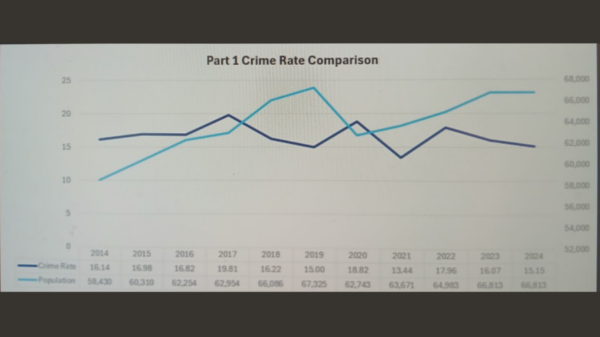By Matt Kyle
Dallas Morning News
Reprinted – by Texas Metro News
Applicants must pass fitness test, background check, polygraph before moving onto police academy.
For those who want to become a police officer with one of the largest police forces in the country, the process begins with a morning spent at Dallas Police Headquarters.
About twice a month, the Dallas Police Department hosts an open recruiting session at police headquarters where prospective officers show up to begin the background check process and undergo a physical fitness evaluation under the watchful eye of department recruiters. Of those who pass the initial round of assessments, roughly 91.5% of applicants, move on to a medical exam and psychological evaluation and submit to a polygraph examination to test their previous answers.
Good marks during this process mean an applicant can move on to Dallas’ police academy. Forty weeks and 1,400 hours of instruction later, they can become a fully fledged police officer.
Applicant group sizes typically average about 30 to 40 applicants, with more applying at the beginning of summer when school ends, and less in the winter months, officials say. Around 40 came Thursday morning.
The process begins with applicants filling out forms for background checks and providing recruiters with personaldocuments such as a driver’s license, Social Security card, birth certificate and college and high school transcripts. Applicants then move on to a physical fitness test, which consists of activities to gauge their vertical jump, bench press capabilities, an agility test, push-ups, sit-ups and a 300-meter spring and mile-and-a-half run.
Applicants spoke on Thursday morning of their desire to serve their community and protect others.
Kassidy Green, 30, came to Dallas Police Headquarters to apply to be a police officer. From Dallas, she said she wants to join the force to protect and serve, something she said she derives from her desire to protect her family.
Green also said she valued the team values within the police department.
“I’m really about camaraderie,” she said. “I‘m really just about having the next man’s back, and showing up and setting my foot forward for the next people that come behind me and protecting those around me.”
For Jaelon Martin, 23, joining the police force seemed like the next step after leaving the U.S. Marines Corps. Originally from Mississippi, he said he saw a lot of overlap between law enforcement and the military.
Army veteran Wesley Yellowwings, 32, said joining the police was something he always wanted to do, for similar reasons he joined the military. He said his time in the military was to serve his country, but now he wants to serve his community.
Chris Martinez, 21, said he moved to Dallas from the Rio Grande Valley to try and become a Dallas police officer. Martinez said officers should be role models for their communities.
“Everyone needs to be protected,” he said. “I want to be that role model for everyone.”
Applicants who pass the first phases of recruiting go on to attend Dallas’ Police Academy, which consists of 1,400 hours of instruction spread out over 40 weeks. Recruits study the Texas Penal Code, municipal codes and traffic laws, and are trained on arrest, search and seizure procedures, firearms, defensive tactics and emergency vehicle operation.
Dallas PD recruits are also taught some Spanish, which is beyond the standard set by the Texas Commission on Law Enforcement.
The on-site training and recruiting events come shortly after voters narrowly passed Proposition U in the Nov. 5 election, which calls on Dallas to hire roughly 900 more police officers.
A spokesperson with the department said police recruiters attend job fairs across the Dallas-Fort Worth area, the state of Texas and the country looking for prospective applicants. The department also offers off-site testing, meaning interested applicants can submit their paperwork and undergo an interview without needing to travel to Dallas.
| This story, originally published in The Dallas Morning News, is reprinted as part of a collaborative partnership between The Dallas Morning News and Texas Metro News. The partnership seeks to boost coverage of Dallas’ communities of color, particularly in southern Dallas. |

You must be logged in to post a comment Login